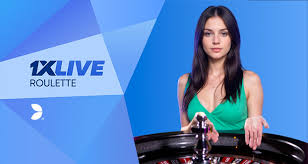
Sport betting is more than chance; it is a discipline that combines analysis, risk management, and emotional control. In this guide we explore core principles that separate recreational players from long-term winners. Whether you are just starting or looking to refine your approach, understanding the fundamentals will make your decisions smarter and your sessions more sustainable. For those exploring different products, consider offerings like sport betting slots 1xbet as part of broader entertainment choices while keeping sport betting as a focused skill-based pursuit.
1. Know the Markets and Odds. The landscape of sport betting includes straight bets, handicaps, totals (over/under), parlays, futures, and numerous prop markets. Each market has different volatility and juice. Learning how odds translate to implied probability is essential: converting decimal or fractional odds into probability helps you spot where the bookmaker’s margin eats into perceived value. Odds are not fixed truths; they are consensus reflections of perceived risk and book liability.
2. Bankroll Management. One of the most frequently overlooked pillars of successful betting is bankroll management. Decide on a staking unit based on a percentage of your total bankroll — many professionals recommend 1–3% per bet for flat-staking strategies. Adjust stake sizes to variance: larger bets for high confidence with lower bankroll exposure overall. Never chase losses by increasing stake sizes wildly; disciplined sizing protects you against runs of bad luck and keeps you in the game long enough to capitalize on your edge.
3. Value Over Winners. A winning ticket doesn’t necessarily equate to long-term profit. The key is to find positive expected value (EV) opportunities where your estimated probability of an outcome is higher than the market’s implied probability. This requires independent assessment: power rankings, models, historical data, situational factors, and line shopping across bookmakers. Keep in mind that variance means you can lose individual bets with positive EV; the goal is consistent EV exploitation.
4. Line Shopping and Bookmaker Selection. Different bookmakers offer different lines, limits, and promotions. Opening accounts with multiple reputable bookmakers allows you to shop for better odds and more favorable limits. Be aware of pricing trends and how sharp money or public bias moves lines. Sportsbooks may also offer bonuses or loyalty programs; factor those into your overall expected value calculations when they change the effective odds.
5. Using Models and Data. Building a predictive model can range from simple Elo-type ratings to complex machine learning frameworks. The model’s purpose is to produce a consistent and testable probability estimate for outcomes. Quality input data, realistic assumptions, and backtesting are crucial. Avoid overfitting: a model that perfectly describes historical noise will likely perform poorly in live markets. Use out-of-sample testing and simulate bankroll outcomes to verify robustness.
6. Live Betting Strategies. In-play betting introduces a different skill set: rapid assessment, patience, and an understanding of momentum and match dynamics. Live odds are more volatile and can offer mispricings, especially immediately after key events (goals, injuries, substitutions). If you choose to bet live, have a clear plan, focus on a few markets you understand deeply, and resist impulsive bets triggered by raw emotion.

7. Props and Futures. Proposition bets and futures can offer high payouts but often come with larger bookmaker margins. They can be useful for hedging or exploiting specific inefficiencies (e.g., a player returning from injury where lines lag true probability). Due to their long horizon, futures require a larger mental bankroll allocation; cash-out tools and hedging can manage fluctuations but reduce potential upside.
8. Hedging and Arbitrage. Hedge bets allow you to lock in profits or reduce risk when positions move, but frequent hedging erodes EV if done reactively. Arbitrage — simultaneous bets across bookmakers that guarantee profit — exists but is rare and often limited by bookmaker account restrictions. If arbitrage opportunities arise, act quickly but be mindful of stake limits and the potential for voided bets if markets change.
9. Psychology and Discipline. Emotional control is a competitive advantage. Tilt, overconfidence, and recency bias can distort judgment. Keep records of every bet with notes on rationale and outcome. Reviewing your bets helps identify leaks in logic or systematic errors. Set loss limits and know when to step away. Maintain a healthy balance between betting and everyday life; betting should not compromise financial stability or relationships.
10. Responsible Gambling. Set clear rules for yourself: only bet money you can afford to lose, avoid betting under the influence, and use self-exclusion or deposit limits if necessary. Understand warning signs of problem gambling and seek help if betting starts to harm your life. Many reputable jurisdictions and bookmakers provide tools and hotlines for support — use them proactively if needed.
11. Continuous Learning. The sports and betting markets evolve. Stay informed about rule changes, player conditions, and analytic developments. Engage with communities, read research, and analyze your historical performance. Persistently question your assumptions and iterate on your methods. Small improvements compounded over time can transform a break-even approach into a profitable one.
12. Legal and Tax Considerations. Betting legality varies by jurisdiction. Ensure you use licensed operators and understand local regulation. Additionally, winnings may be taxable; consult a tax professional to understand reporting requirements and potential liabilities in your country.
Conclusion: A Pragmatic Approach. Successful sport betting blends research, discipline, and humility. Emphasize bankroll protection, focus on finding value, and maintain emotional control. Use technology wisely — models, live data, and multiple accounts — but keep strategies simple enough to execute consistently. Betting is a long game: aim for steady, measurable progress rather than overnight miracles. With practice and responsible habits, you can improve your edge and enjoy the intellectual challenge that sport betting presents.

Recent Comments